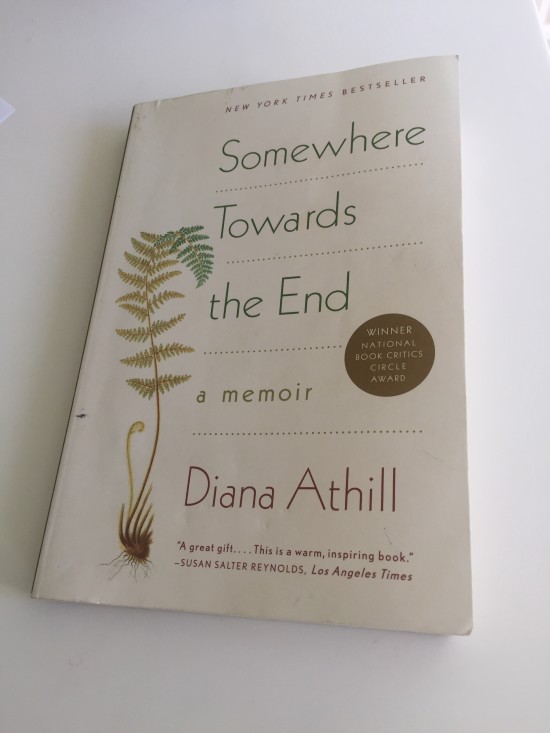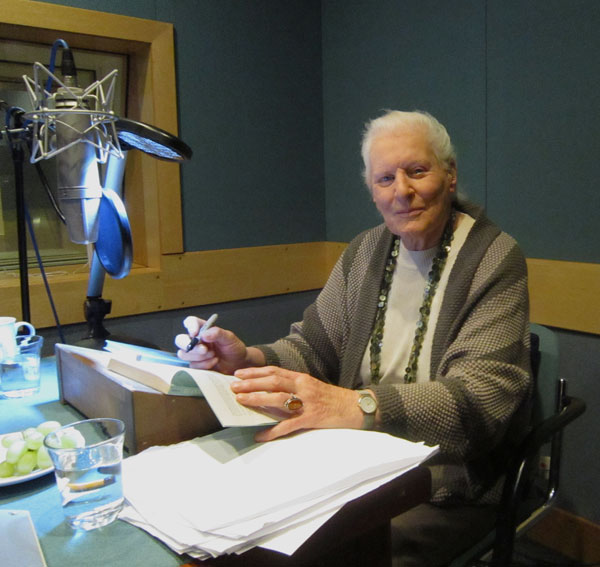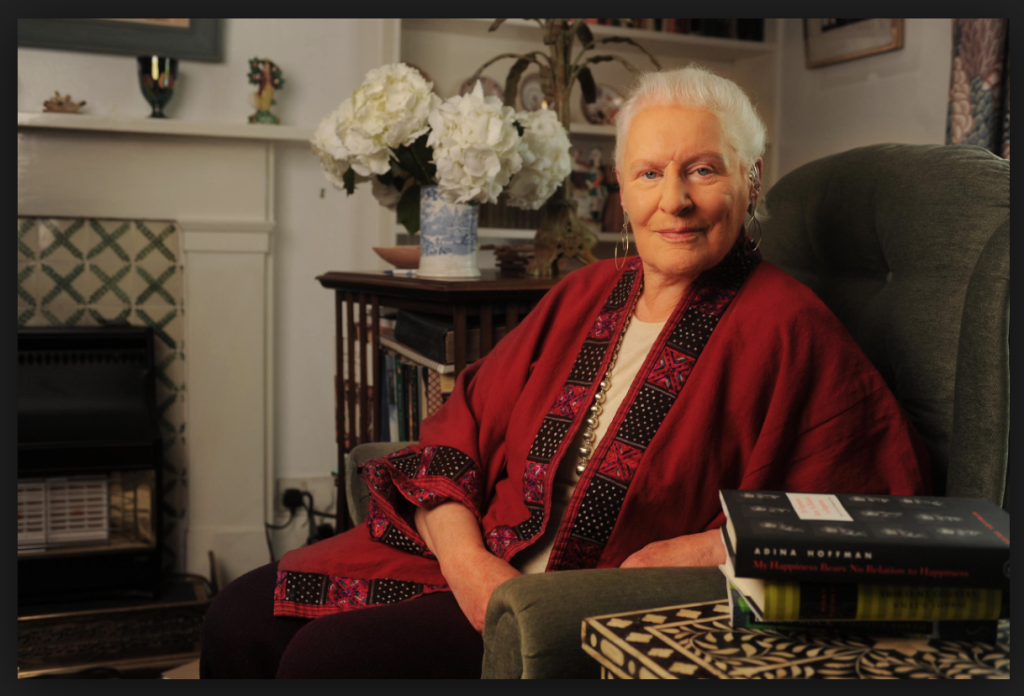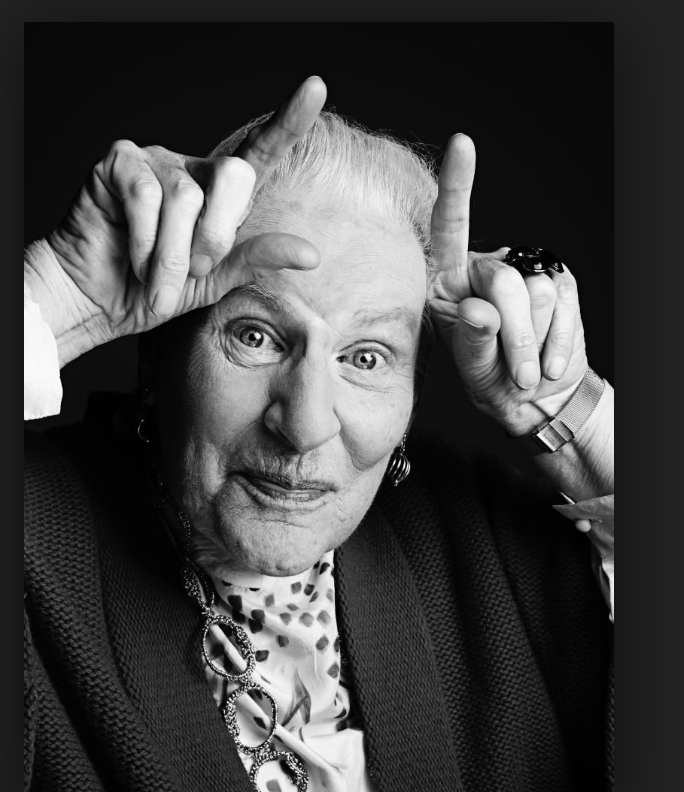If you need inspiration and reassurance that old age can be a dynamic time and not a passage to be feared, then grab Diana Athill’s two memoirs. The first, Somewhere Towards the End, was written when she was 89. Her most recent memoir, Alive, Alive Oh! was published last year when Athill was 98!

My favorite Athill memoir
Athill is a wonderful example of how one can discover a new career post retirement. Prior to publishing her late life memoirs, she was a well-respected book editor, representing notables like Philip Roth, Jean Rhys and Margaret Atwood.
What I find singular about Athill’s books is her frank appraisal of aging, while accepting without complaints the aches and pains, the losses and more recently her move into a retirement home.

Still writing at 98!
She writes: “Whatever happens I will get through it somehow, so why fuss?”
Athill frequently refers to her life as one where she was “lucky.” While luck might play a part in her good fortunes, I think the real credit goes to her generous spirit which refuses to wallow in broken love affairs; her late life pregnancy which ended in a miscarriage that nearly killed her; and frequent economic hard times.
She seems remarkably free of regrets, expressing gratitude for what she has learned from her disappointments. She is particularly generous to former lovers, often referring to them as men who ‘taught her a lot’ about life.

Athill, radiating elegance and confidence
Athill is adept at putting a positive spin on old age’s infirmities. Describing her love of gardening, which she is no longer physically up to, she writes, “I can still see the flowers in my mind’s eye.” Similarly she draws on her rich memory bank, when she has trouble sleeping, confessing to counting old lovers, rather than sheep. Or she notes that the long periods of sitting brought on by periods of confinement are devoted to recalling favorite paintings and favorite cities.
In another passage she sizes up her current physical state: “One good thing about being physically incapable of doing almost anything is that if you manage to do even a little something, you feel great.”
She is equally entertaining when she admits to not liking being a “carer”–the British way of describing a caretaker. She confesses to not being particularly attentive when her mother was ill and dying, but the deathbed scene between mother and daughter is evidence of their bond, while revealing her mother’s love of life, reminiscent of Athill herself. Her mother’s last words were: “It was absolutely divine,” referring to a newly planted Eucalyptus tree in her garden.

One is never too old to be playful!
Athill appraises her life as a happy one, attributable to two practices: “avoid romanticism and abhor possessiveness.”
(I think she should have added the fact that she came from a happy home where she felt loved.) Not being too attached to her possessions eased her adjustment into life in a retirement home. While she admits to an initial difficulty trimming her belongings to fit into her new home’s tiny room, she concludes, that in the end she felt liberated shedding her possessions.